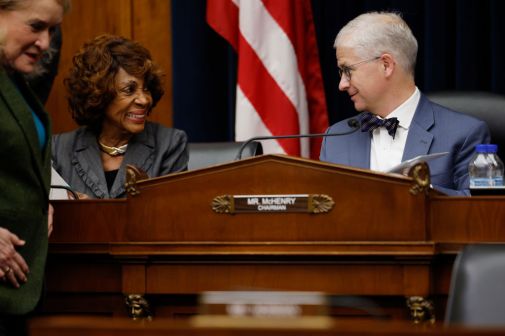Federal officials state their case for continued telework during House Oversight hearing

Preserving remote-work options for federal employees saves taxpayer dollars, broadens and diversifies applicant pools, and helps the government retain and compete for private-sector talent, four agency officials said during a Wednesday congressional hearing on post-pandemic telework policies.
Testifying before the House Oversight Subcommittee on Government Operations and the Federal Workforce, the agency officials touted increased rates of in-person work while also pushing for sustained telework flexibility to ensure continuity of services.
“Regardless of where our employees are located, they are working,” said Oren “Hank” McKnelly, executive counselor at the Social Security Administration. “Telework is not one size fits all.”
While many Democrats on the subcommittee made the case that operating under the specter of a government shutdown is an actual hindrance to agency outputs, several Republicans used their time to question whether telework compromised worker productivity.
Rep. Byron Donalds, R-Fla., zeroed in on increased SSA processing and response times, which McKnelly attributed in part to “historic” attrition levels during the pandemic.
Rep. Lauren Boebert, R-Colo., meanwhile, prodded McKnelly on “unsatisfactory” services from “delinquent” SSA employees allowed to “sit on their sofas” and work from home.
McKnelly responded that application and processing backlogs are due in part to underfunding, and the fact that SSA saw an “increase of over 8 million beneficiaries over the last 10 years. At the same time, we experienced the lowest work staffing levels at the end of FY22,” he said. “That’s a math problem.”
Other Republicans were slightly less bearish on telework among federal employees. Rep. Clay Higgins, R-La., mused that while remote work “certainly has its place” in the federal government, “as we approach the quantum era, you’re one step away from being replaced by AI.”
Rep. Chuck Edwards, R-N.C., said he “could be convinced” on telework’s benefits but that he wants “to make the case to the American taxpayer. It’s real easy to talk hypothetically and say we’ll be able to spend less money to get people into D.C., but that really doesn’t mean a whole lot unless we can quantify that.”
Jeremy Pelter, deputy assistant secretary for administration at the Commerce Department, pointed to a decrease in transit costs — particularly with regard to subsidized public transportation benefits for Washington-area workers — as one calculable cost-saving measure. And McKnelly noted that on SSA property alone, $60 million has been saved in lease cost avoidance over the past decade, with another $35 million projected over the next four years.
“I believe the hybrid work environment does allow us to optimize space,” he said. “And in certain cases, we can redirect those savings into serving more people.”
USAID is better equipped to serve its global mission thanks to telework, according to Kathryn Stevens, the agency’s acting chief human capital officer. The international development agency has people working across time zones in 80 countries, she said.
At the Department of Health and Human Services, meanwhile, the time it takes to hire new staff has decreased by 22 percent over the past year, noted Bob Leavitt, the agency’s deputy assistant secretary of human resources and chief human capital officer. Remote work has also enabled the agency to boost its hiring of military spouses by 39 percent.
“Even if their family moves to another duty station, we are able to sustain and retain that employee,” Leavitt said. “That is one way we are helping save military families and also employing and working with folks across the country where the talent is.”
Chair Pete Sessions, R-Texas, said that subcommittee staff will send a letter to the four agency representatives in the next few days, asking for additional data and information on telework policies as requested by members. The agencies must respond within 15 days.
In closing, Sessions said he’s in agreement with ranking member Kweisi Mfume, D-Md., that “the overwhelming view of effectiveness and efficiency should be how we’re looking at what the agencies are trying to do” when it comes to telework.






